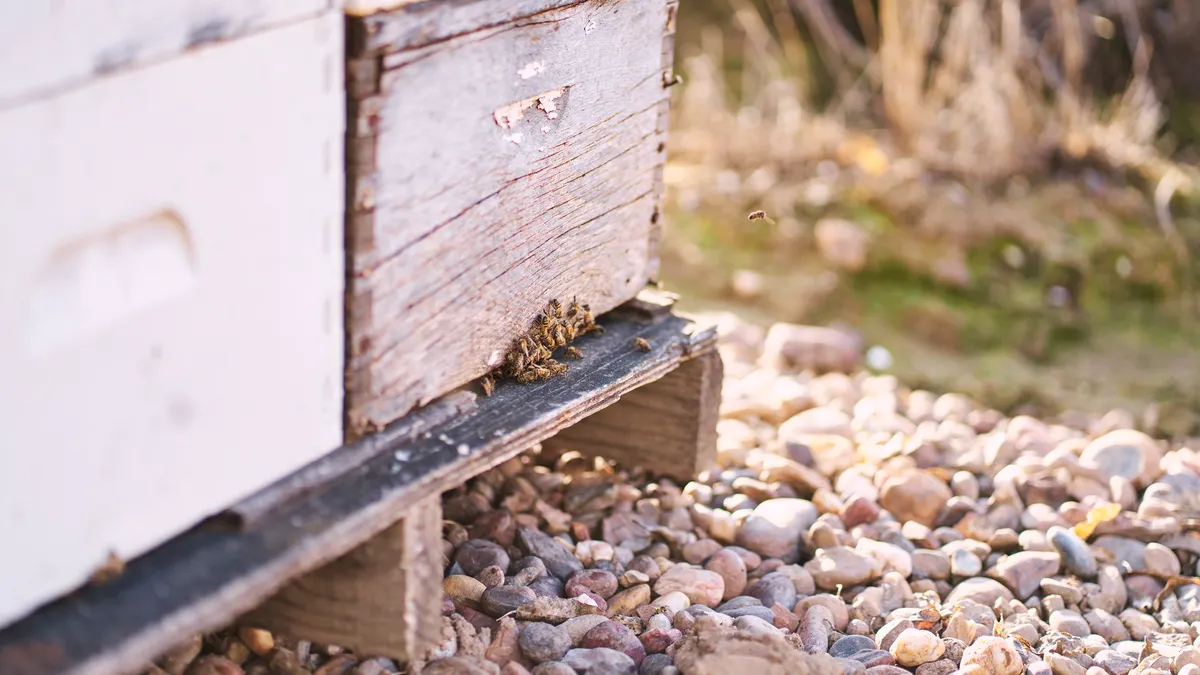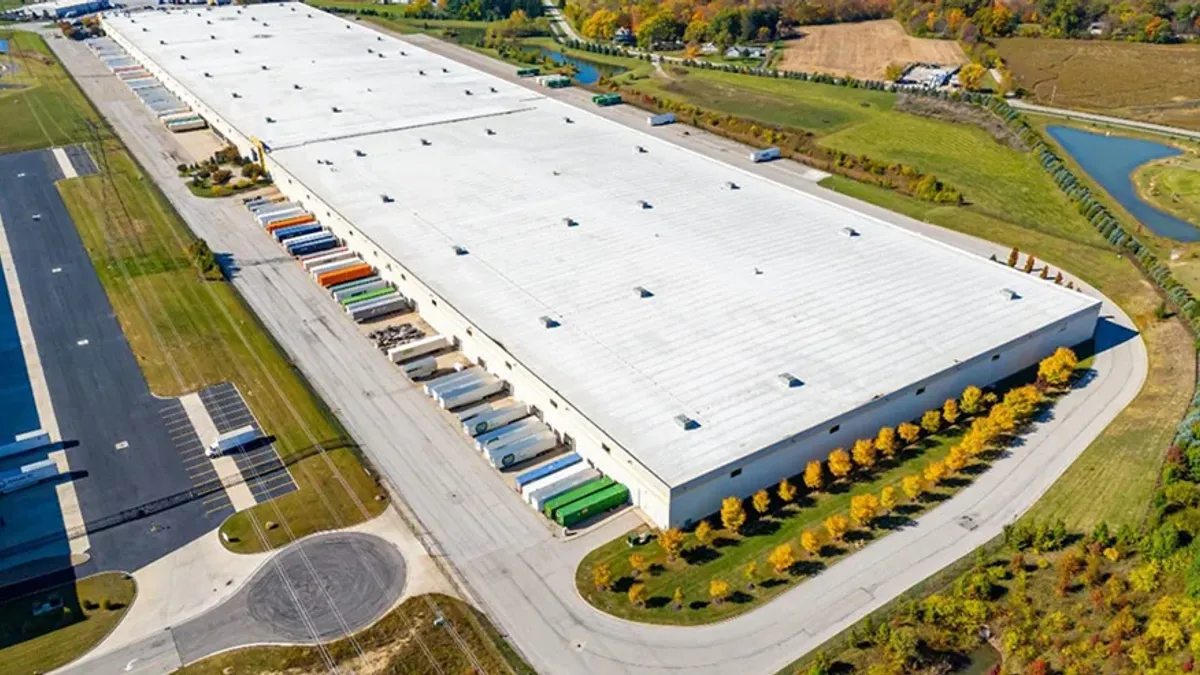Kind Healthy Snacks announced today it plans to source its almonds exclusively from bee-friendly farms by 2025.
Almond trees typically need honey bee colonies to cross-pollinate and produce nuts. But pesticides, monotonous habitats and industrial farming practices, particularly ones used by the almond industry, are reportedly killing billions of honey bees each year.
"Almonds are the lead ingredient in most of Kind's products. It's our No. 1 ingredient by both volume and spend," Jenny Stanley, Kind's manager of sustainability and corporate affairs, said. "So as part of our sustainability journey, we assessed and looked at our ingredient purchasing with the lens of 'OK, from a sustainability point of view, where can we make the greatest and most meaningful impact based on our size and scale.'"
Currently, the large majority of the globe's almonds come from California, with almost 1.5 million acres of the nut orchards in the state. But less than 20,000 acres of that is verified as bee-friendly, according to Kind.
With this new pledge, the snack company is requiring its almond suppliers to reserve at least 3% to 5% of their farmland as a habitat for bees, butterflies and other pollinators. The company has also worked with its suppliers to stop using two pesticide treatments, neonicotinoids and chlorpyrifos, that can hurt pollinators.
How will the company hold itself accountable to these goals? Kind said in a release it will use currently available certification and verification programs, in addition to new methods as they are developed, to verify its suppliers' processes. It will work with almond farmers, suppliers, researchers and other brands to grow the use of bee-friendly practices like bee highways, which creates a community of feeding stations and shelters for pollinators. Stanley said the company hopes its actions will encourage other snack brands to make similar pledges.
"If we don't move others to join us, then we've failed. We cannot do this alone," Stanley said.
Bee-friendly market still in its 'infancy'
From nonprofits to the Almond Board to the experts and academics, Stanley said many people have helped bring light to this issue before them and helped Kind figure out what its commitment could look like.
In 2017, the Almond Board of California announced it was investing $4.8 million in 64 independent research projects working on innovative farming techniques, including the protection of honey bees that pollinate the almond crop. Earlier this year, the California almond community launched a Pollinator Protection Plan to encourage bees protection during almond bloom.
"We didn't make this up yesterday. We've been listening and learning and leaning on experts for years, and we finally felt like now was the right time to enter the arena, but it's been really years in the making," Stanley said.
The Kind Foundation is also making a $150,000 investment in the Williams Lab at the University of California, Davis for it to continue its bee health research and to measure the efficacy of farm improvements.
"As an agricultural community, we need to make real change to ensure long-term bee health," Neal Williams, professor of entomology at UC Davis, said in a statement. "KIND's commitment to bee-friendly practices in its supply chain is the sort of actionable approach that will move the dial toward more sustainable practices industry-wide."
But making large-scale agricultural changes can be hard for farmers as "it's not something you can do overnight," Stanley said. She said farmers also want to move in this direction, but want partners to work together on the effort.
"If we don't move others to join us, then we've failed. We cannot do this alone."

Jenny Stanley
Manager of Sustainability and Corporate Affairs, Kind Healthy Snacks
"The almond farmers' success is closely connected to Kind's success because if we can't buy almonds, we can't make our product," Stanley said. "These folks are dealing with a lot of new climate dynamics and so for us, good for business is also about staying in business and making sure you have a crop to yield and a crop to produce."
Stanley said Kind's hope is that if all of its partners "can get around the table and agree to move in this direction, there would never be a cost passed on to the consumer" to make these changes.
Sustainability has become a more important factor in consumer buying and food companies' missions. Now could be a time when consumers are paying even more attention to these issues. In a new survey, nearly half of consumers said the pandemic made them more concerned about the environment. However, consumer knowledge around bee health and pesticides isn't as far reaching. A recent Rutgers survey found that more than 70% of those surveyed had not heard of the pesticide neonicotinoids, which can harm pollinators.
"For us it's not really about the seal or the certification, and it's quite frankly not really about what consumers want or are telling us. We're doing this because it's the right thing to do, because we've got 1% to 2% of the world's almonds, and we need to be part of this dialogue," Stanley said.
Stanley said Kind's commitment "stands on the shoulders" of many other brands and leaders who are working on this issue. In June, Perdue Farms said it became the first U.S. poultry company to create a pollinator-friendly habitat throughout its solar installation. And earlier this year, Häagen‐Dazs also reportedly became the first major food brand to carry the Xerces Society's Bee Better Certified Seal on its ice cream products with almonds.
"The market for bee-friendly almonds is in its infancy and we need to grow it," Stanley said. "The way we've been thinking and talking about the movement is that it's not just about what Kind can do, it's about what we as an industry need to do and really lending our voice. There's been a lot of great work, but we all need to go further and faster."























